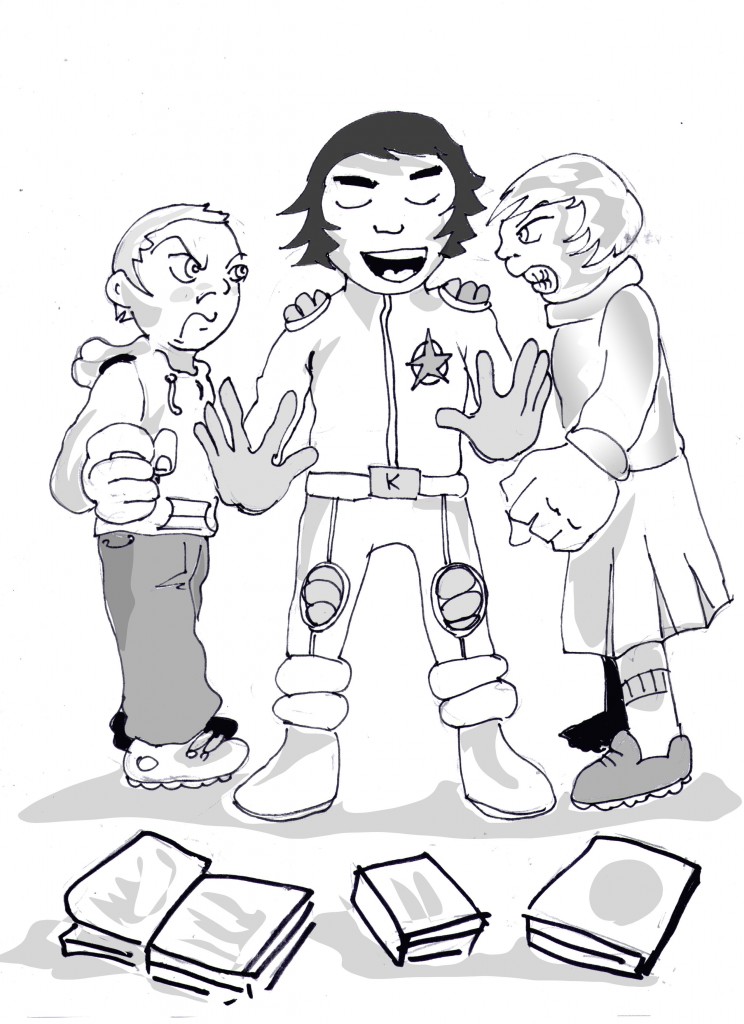JKP author Stephanie Azri, Healthy Mindsets for Super Kids, gives tips on how to help your child cope with bullying and what you can do to build your child’s resilience.
 The bullying of children at school has happened for a very long time and unfortunately is likely to continue. Generally speaking, the victims are often children who are reserved, have less friends, who may be new to school, who have special needs or who generally appear to be ‘victim material’. Some of the symptoms of a child being bullied may be complaints of headaches or stomach aches, particularly just before going to school, changed behaviours, sadness or tears, unexplained anger at home or towards siblings, nightmares, a child withdrawing or being quite vague about their day. Parents and children alike can be very affected by a child being bullied at school. So how can we, as parents, support our children and confront the bullying in a constructive way?
The bullying of children at school has happened for a very long time and unfortunately is likely to continue. Generally speaking, the victims are often children who are reserved, have less friends, who may be new to school, who have special needs or who generally appear to be ‘victim material’. Some of the symptoms of a child being bullied may be complaints of headaches or stomach aches, particularly just before going to school, changed behaviours, sadness or tears, unexplained anger at home or towards siblings, nightmares, a child withdrawing or being quite vague about their day. Parents and children alike can be very affected by a child being bullied at school. So how can we, as parents, support our children and confront the bullying in a constructive way?
- Communicate with you child; Enquire about their day and ask questions. For example, debrief about the events of the day on the way home from school or before bedtime. Ask them “what worked well today?” or “did anything sad happen at school?” Reinforce with them that you will always be available to listen to them, no matter what the issue is.
- Get to know the children around your child, including the bullies; attend school functions, help in the classroom, socialise or acknowledge their parents. Bullies often think they will get away with it, and this becomes much more difficult when they have to see you regularly or their parents know who you and your child are.
- Prepare a safety net for your children; there are many times in our children’s lives when they will choose not to talk to us for various reasons. Help your children know who they can go to if they have problems. A good way of doing this is to draw their hand on a paper and ask them to nominate a ‘safe’ adult they could turn to for each finger. It may include teachers, school counsellor or friends and relatives.
- Teach your children resilience; rehearse with them assertive ‘looks’ and ‘behaviours’, practice walking away or ignoring the bullies. Bullies thrive on reactions, and in most cases assisting children in remaining assertive and non responsive can work. Work on their self esteem as much as you can.

- Seek support from the school; many schools have now very strict anti-bullying policies. Ensure the school knows how distressed your child may be and what has been happening. Request an appointment with the teacher or principle to discuss the bullying. Request a plan be put in place and that you be updated on further issues/developments.
Bullying can be a very difficult experience which can affect children in the long term. It is important that both the parents and school staff take this issue seriously. But most importantly, it is important to teach our children the resilience to overcome it. Self esteem, communication and social skills as well as emotional regulation are vital for children to develop healthy mindset!
Stephanie Azri is a Clinical Social Worker. Author of “Healthy Mindset for Super Kids”, “High Risk pregnancy and Foetal diagnosis; your journey” and “State of Innocence”.